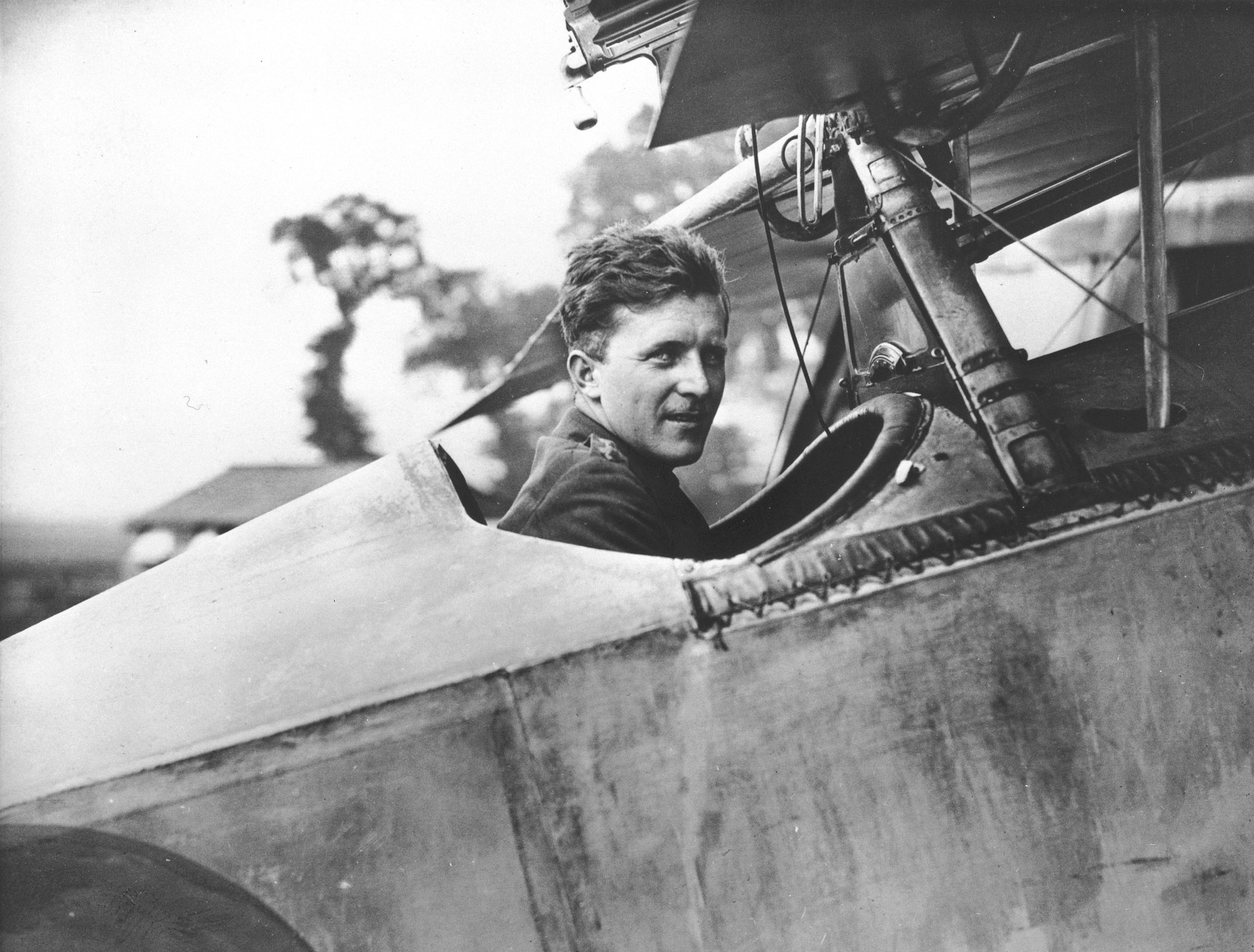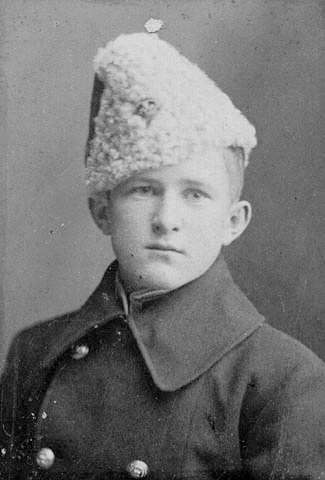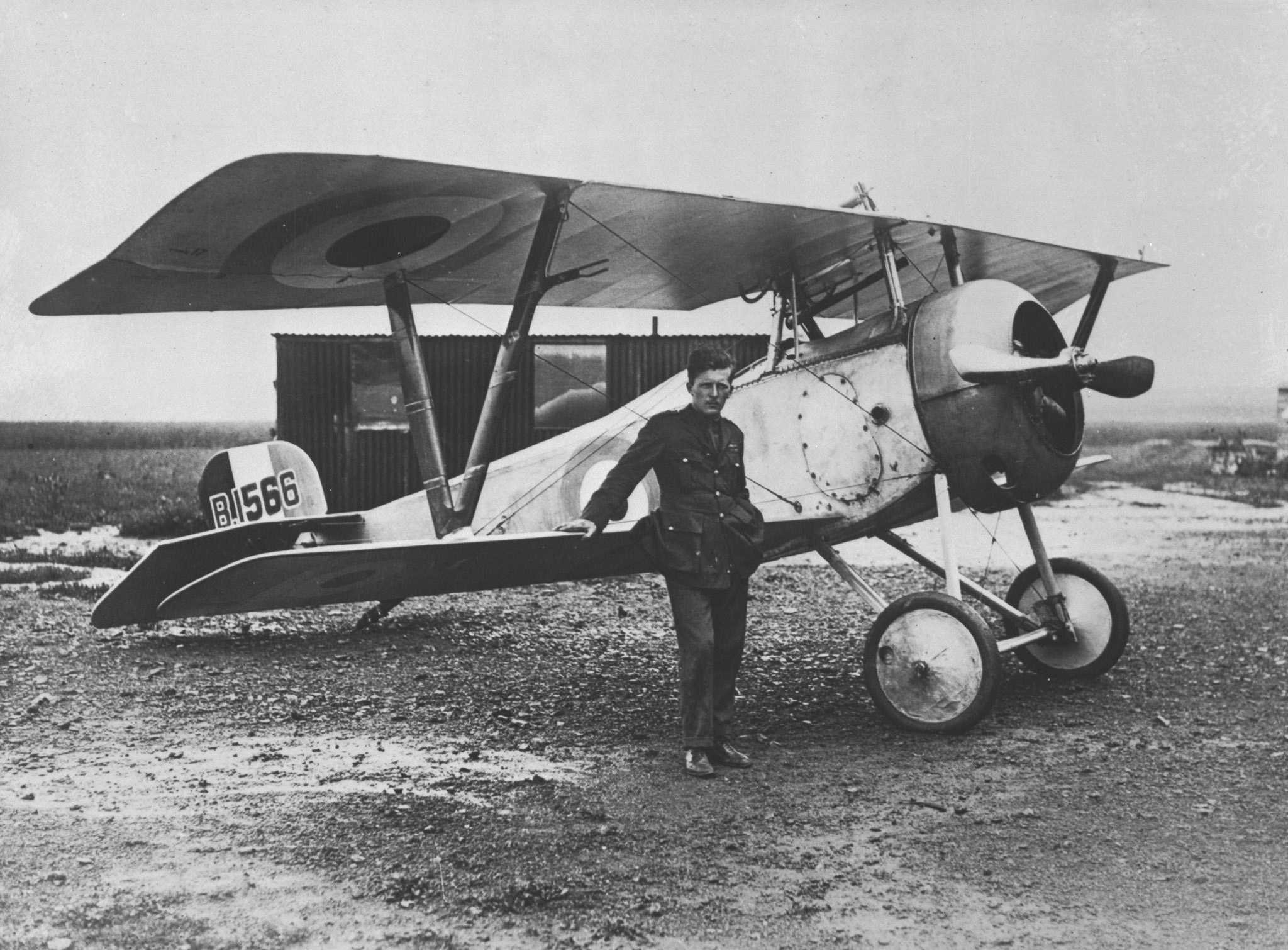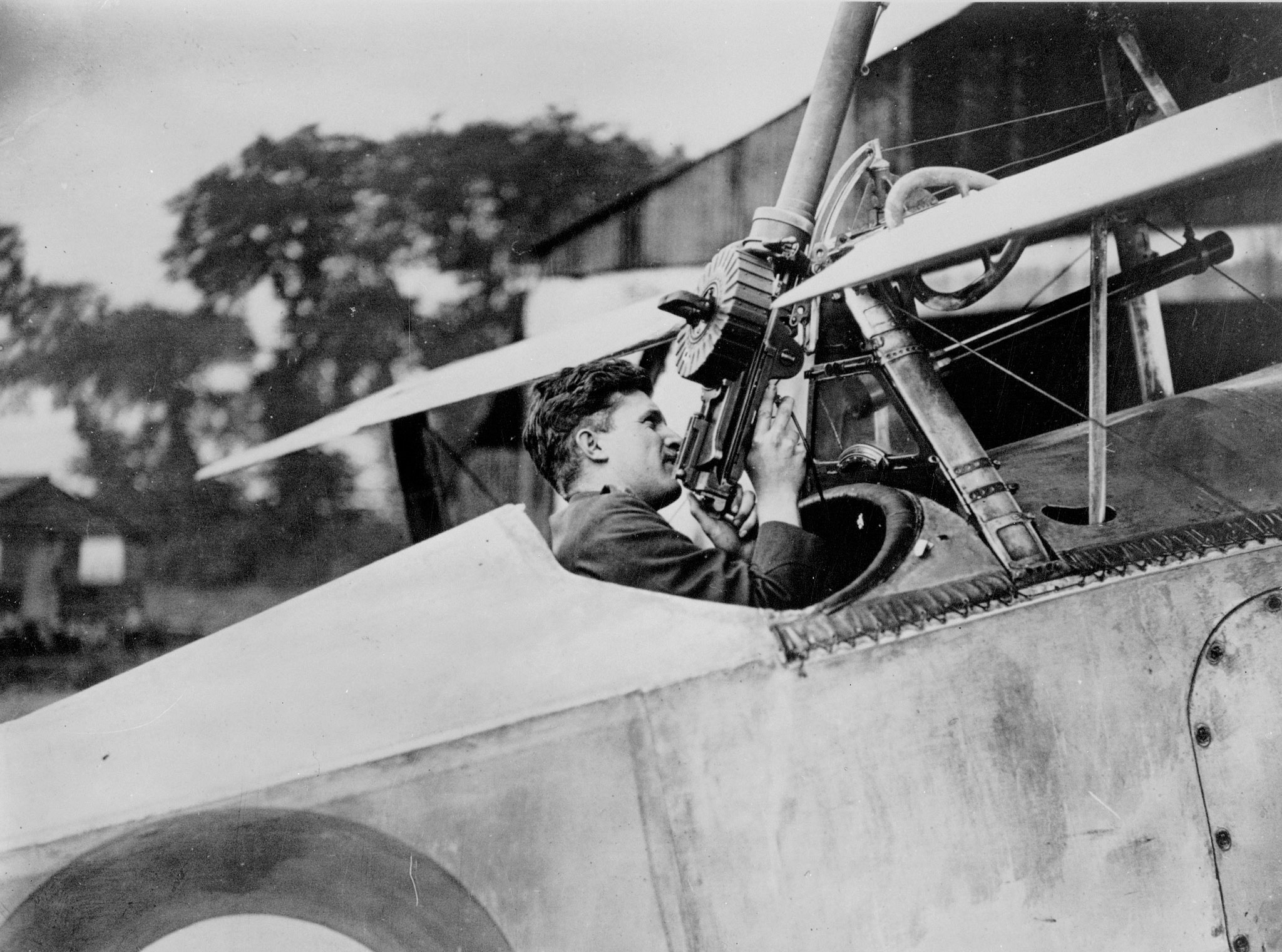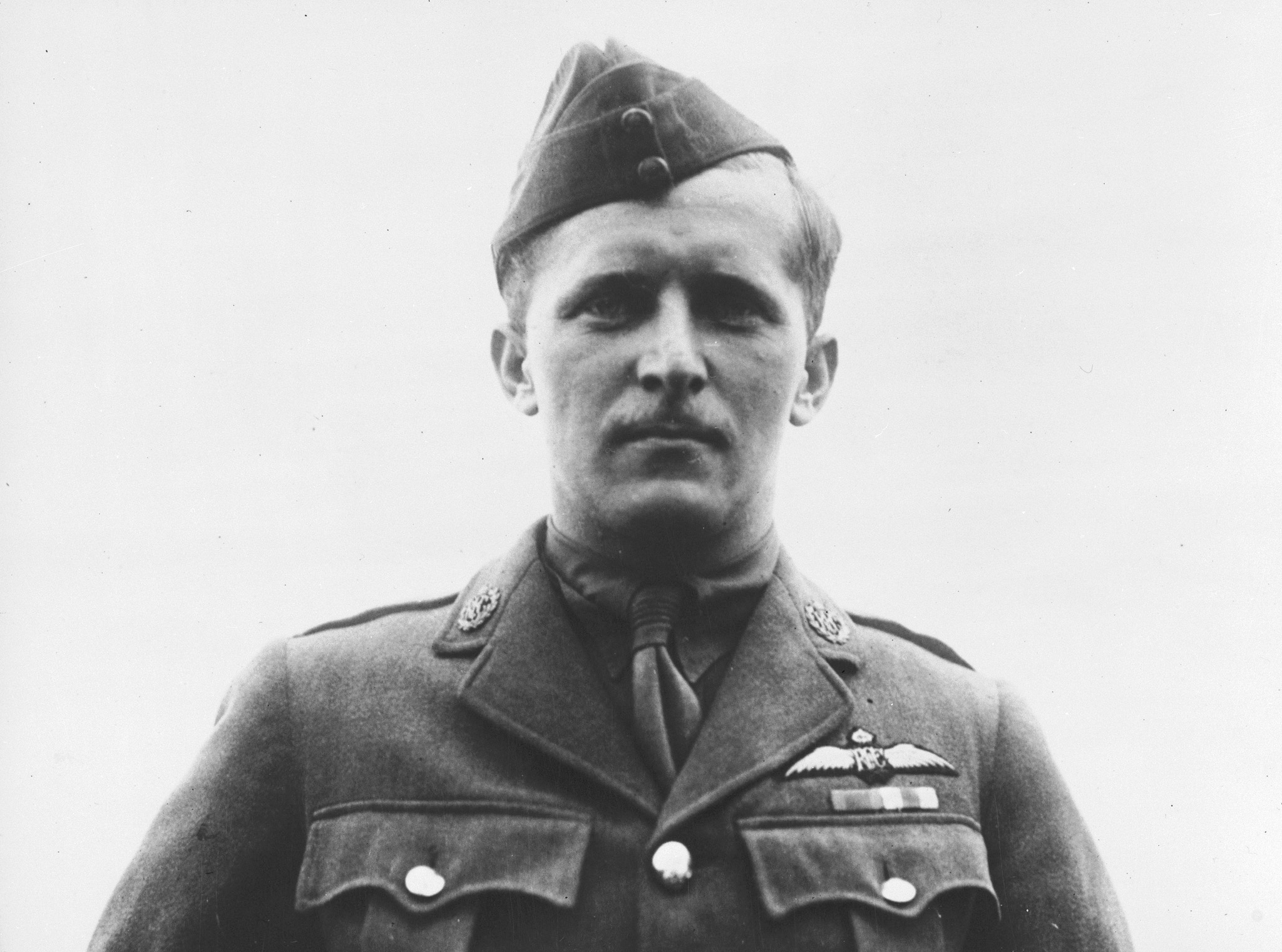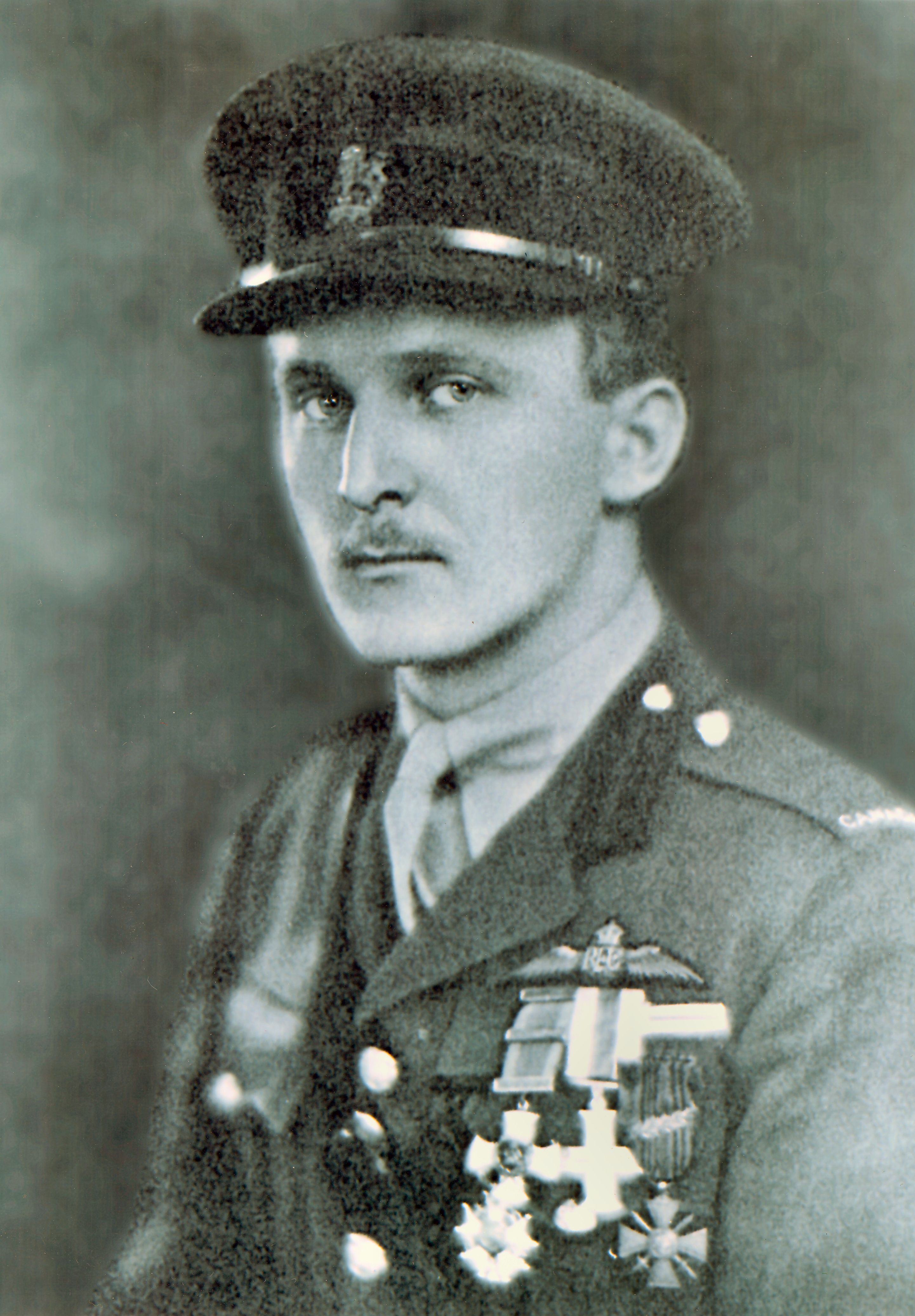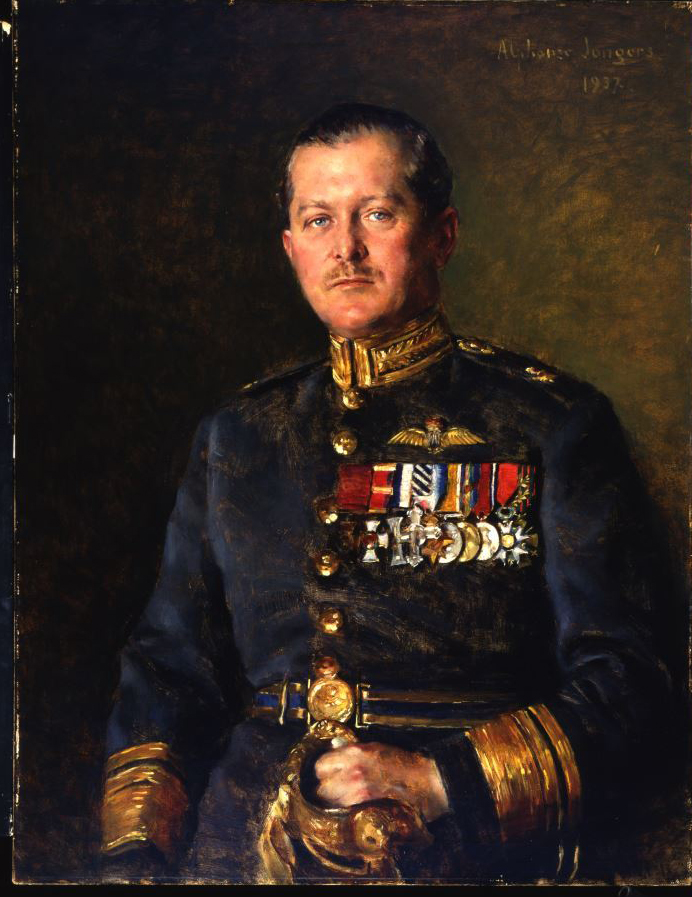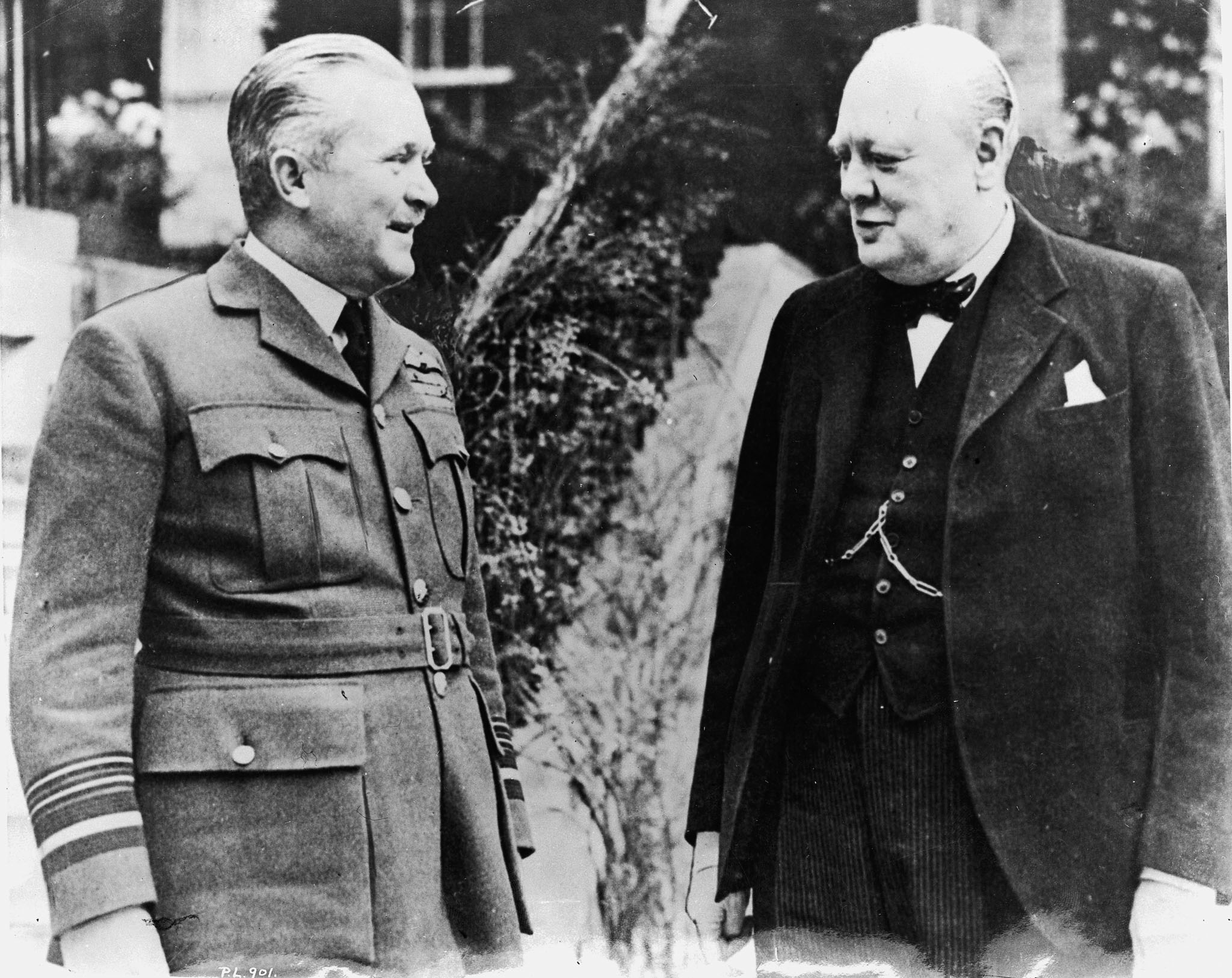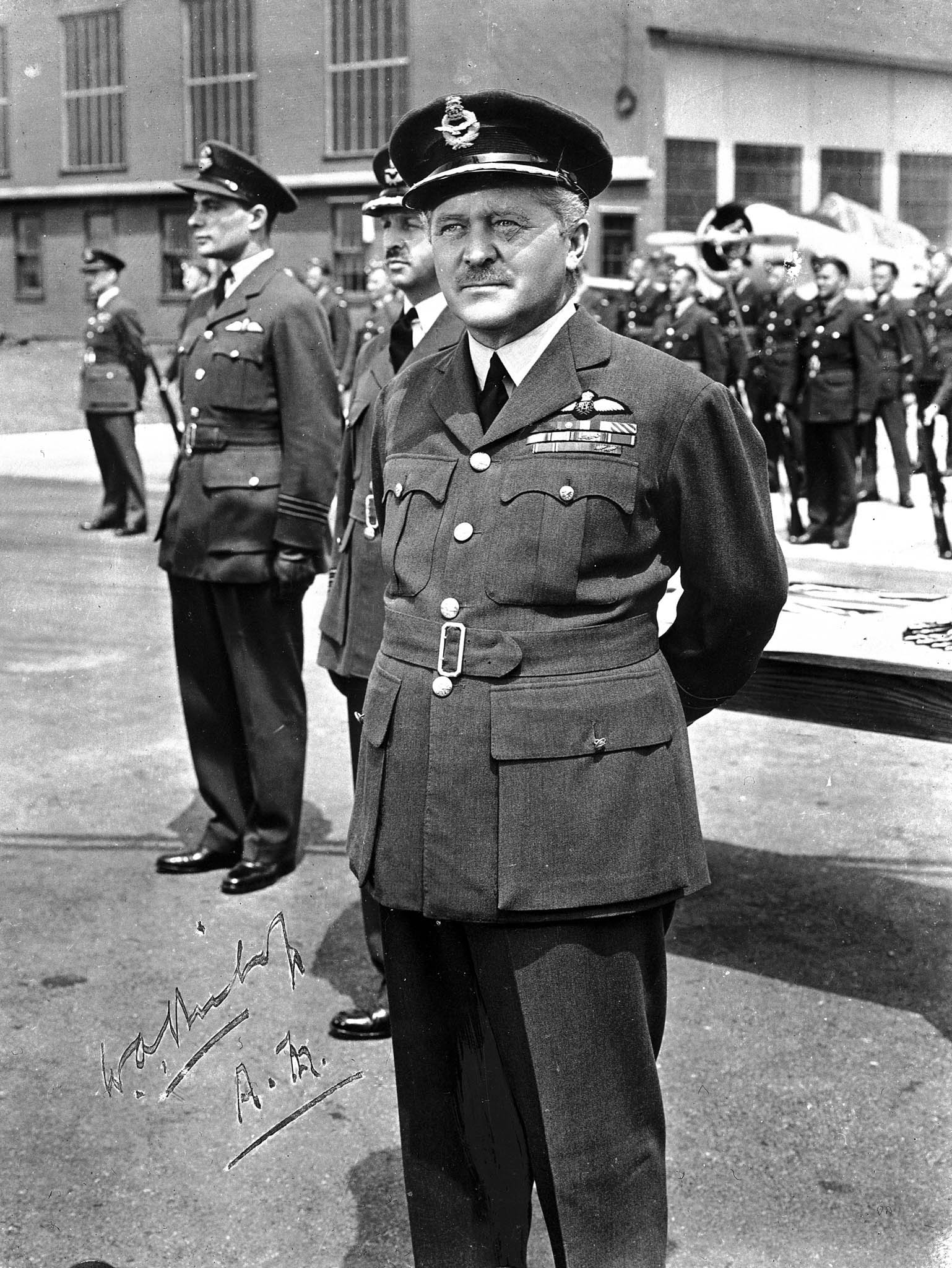Billy Bishop, Canada’s first Air Force Victoria Cross winner
News Article / June 2, 2020
Click on the photo under “Image Gallery” to see more photos.
June 2 is commemorated as “Billy Bishop Day” in honour of the famous First World War ace.
By Captain Steven Dieter
On June 2, 1917, Captain William Avery “Billy” Bishop took off from Filescamp Farm, his home base with No. 60 Squadron, Royal Flying Corps, near Arras in northern France, on a daring early morning mission.
It was a mission planned “after much thought”, according to his own words in Winged Warfare, first published in 1918.
“Dawn was the hour I considered advisable, as there would be very few machines in the air, and I would have a great chance of evading trouble on the way to the aerodrome.”
Captain Bishop was no rookie in terms of combat, although he had only joined No. 60 Squadron in March 1917, and won his first combat victory on March 25. Already credited with 22 aerial victories by the morning of his dawn attack, he was a keen marksman both in the air and on the ground. These skills would prove valuable during his solo adventure.
Flying over the enemy lines, Capt Bishop acknowledged that his original target turned out to be less than ideal. Finally finding a suitable target – the German aerodrome at Estourmel – he realized he had no clue where he was. Nevertheless, he continued with his mission.
He shot up one aircraft as it taxied its way towards take off. The second aircraft “crashed into some trees near the aerodrome” after Captain Bishop had shot at him. The third would be the victim of a dogfight.
Capt Bishop returned to his aerodrome with his aircraft, a Nieuport 17, which was now riddled with many bullet holes. He recounted the exploits of his mission to his fellow pilots and ground crew; the accolades soon followed.
“Within three or four hours I had received many congratulations upon this stunt, and what I had planned as merely a way of shooting down some more of the Huns I found the authorities considered a very successful expedition,” he said.
Indeed, the authorities considered this expedition so successful that Captain Bishop would be considered for the British Empire’s highest decoration for Valour – The Victoria Cross.
The decision to award Capt Bishop the Victoria Cross was not an impulsive one. Senior officers fully investigated the incident, reviewing combat reports, squadron records, and other supporting documentation. Near two and a half months later, it was announced that Captain Bishop had been awarded the Victoria Cross – the first Canadian airman to receive this honour.
It would accompany the Distinguished Service Order and Military Cross that had been awarded but not yet presented.
King George V presented Capt Bishop his three decorations – the three highest decorations for valour – on August 30, 1917, at Buckingham Palace.
Billy Bishop, who was born February 8, 1894, in Owen Sound, Ontario, attended Royal Military College in Kingston, Ontario, and joined the Army when the First World War broke out. After arriving in Britain, he transferred to the Royal Flying Corps as an observer and was sent to France. The following year, he successfully applied for pilot training and, in 1917, he joined 60 Squadron.
He retired from the Royal Air Force at the end of 1918, but was appointed honorary air marshal in 1938. He returned to active service in September 1939, when the Second World War broke out, with the substantive rank of air commodore. The Royal Canadian Air Force put him in charge of recruiting, a task at which he was extremely successful.
Although he resigned from his position in 1944 due to ill health – and began working in the oil business – he offered to return to his recruiting post upon the outbreak of the Korean War.
Billy Bishop died on September 11, 1956, at the age of 62, and is buried in Owen Sound. He was inducted into Canada’s Aviation Hall of Fame in 1974 as one of the inaugural members.
His honours and decorations included the Victoria Cross (VC), Companion of the Order of the Bath (CB), Distinguished Service Order (DSO) and Bar, Military Cross (MC), Distinguished Flying Cross (DFC), Mentioned in Despatches (MID), Croix de guerre (CdG) (France) and the Légion d’honneur (Ld’H) (France).
With files from RCAF Public Affairs
